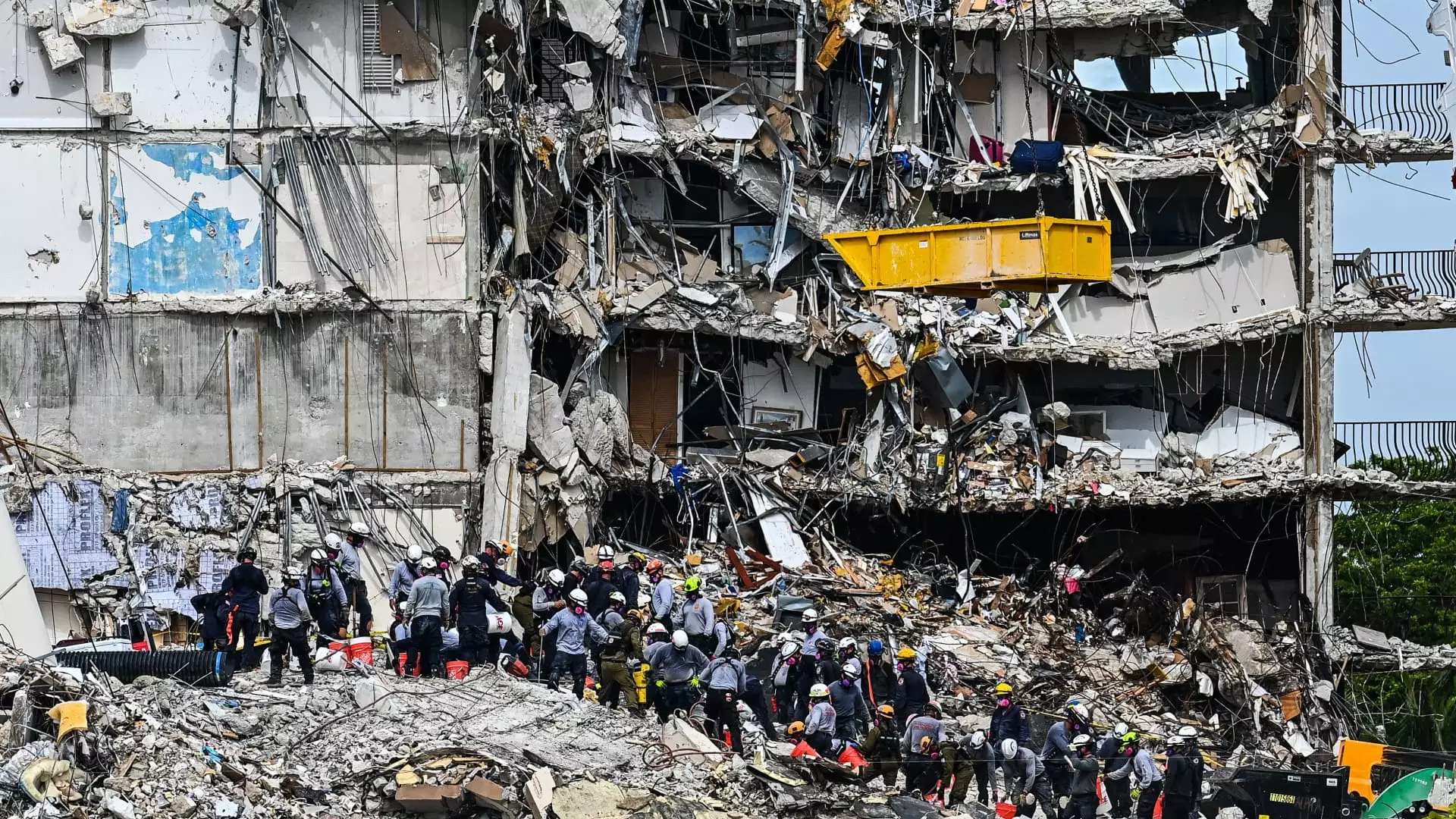The tragic collapse of the Champlain Towers South in Surfside, Florida, in June 2021, sent shockwaves throughout the real estate landscape, prompting immediate legislative action in the state. In response to the disaster, lawmakers introduced stringent requirements specifically targeting older condominium buildings—a move aimed at preventing similar occurrences. Under this new regulation, condominiums that are 30 years or older are now mandated to undergo rigorous inspections, carry out necessary repairs, and establish reserve funds for ongoing maintenance. With the compliance deadline looming, the consequences of this legislation are becoming increasingly apparent, forcing condo owners, many of whom are retirees on fixed incomes, to grapple with mounting financial burdens.
As inspections commence, many condominium associations are facing repair costs that soar into the millions. For approximately 1 million units across Florida, these financial obligations are not just a nuisance; they represent a potential crisis for countless families. Owners are left with few options: some opt to sell their properties rather than face substantial assessments, while others simply abandon their investments altogether. A prevailing sentiment in the market suggests that many owners are seeking potential investors to rescue them from the financial strain of compliance and repairs.
Real estate analyst Peter Zalewski, founder of Condo Vultures, refers to this situation as “the condo cliff.” His observations draw parallels to the Great Recession, highlighting how a significant portion of the owners will be forced to shoulder the financial burden for others who cannot or will not pay. The current landscape of South Florida’s real estate market shows that around 75% of available condo units are over 30 years old, making them susceptible to these new rules. This oversaturation in older units, coupled with the implementation of the special assessments, has resulted in a notable downturn in the real estate market, yet another reflection of the economic strain on these communities.
The repercussions of this legislative measure are prominently visible in the real estate sales data for South Florida. In what is typically a buoyant summer season, sales reported a staggering decline of 21.5% year-over-year, while average prices saw a slight drop of 2.4%. As of the third quarter, active listings surged by 60% compared to the previous year, indicating a marketplace in turmoil. The pressing need for special assessments, which can reach as high as $200,000 per unit, has rendered many owners reluctant to invest further in their properties.
Real estate consultants point out that condominium boards find themselves in a precarious situation as they release maintenance budgets and special assessments. Their resistance to fully acknowledging the extent of impending costs can only exacerbate the tension within communities. As January approaches, many owners will be confronted with new financial demands, signifying what analysts describe as the “calm before the storm.”
In light of these challenges, Florida Governor Ron DeSantis convened a special session to address what many are terming the “financial cliff” faced by condominium associations. However, legislative leaders have opted to postpone deliberations until the regular session begins in early 2025, emphasizing a need for more comprehensive financial assessments before addressing potential modifications to the law. Such delays raise concerns about the future of these aging buildings and the owners who reside within them.
Investors and the Future of the Market
Amidst the turmoil, some real estate agents are witnessing a shift in buyer demographics as investors swoop in to acquire distressed properties. This presents a unique dynamic, where aging buildings, like the Bay Garden Manor condo, are bought at attractive rates, often leading to their demolition and redevelopment. While this offers some relief for current owners, it raises ethical questions regarding the fate of existing residents, many of whom may be displaced in favor of more lucrative developments.
Although property values have experienced a minor downturn, analysts predict that this is merely the beginning of a larger trend. Buyers who entered the market during recent months may soon realize the hidden pitfalls associated with owning older units, especially in light of the new regulations. As more information surfaces regarding the financial realities of condominium ownership in South Florida, an overwhelming number of uninformed buyers could find themselves in a precarious situation.
The fallout from the Surfside disaster continues to reverberate through the landscape of Florida’s condominiums. The new regulations designed to enhance safety have inadvertently intensified the financial strain on aging buildings and their owners. With mounting special assessments, increased listings, and rising tensions among residents, it remains unclear how this crisis will evolve. As Florida navigates this new chapter in condo ownership, one thing is certain: the road ahead will require careful consideration and a willingness to adapt within a rapidly shifting real estate market.

